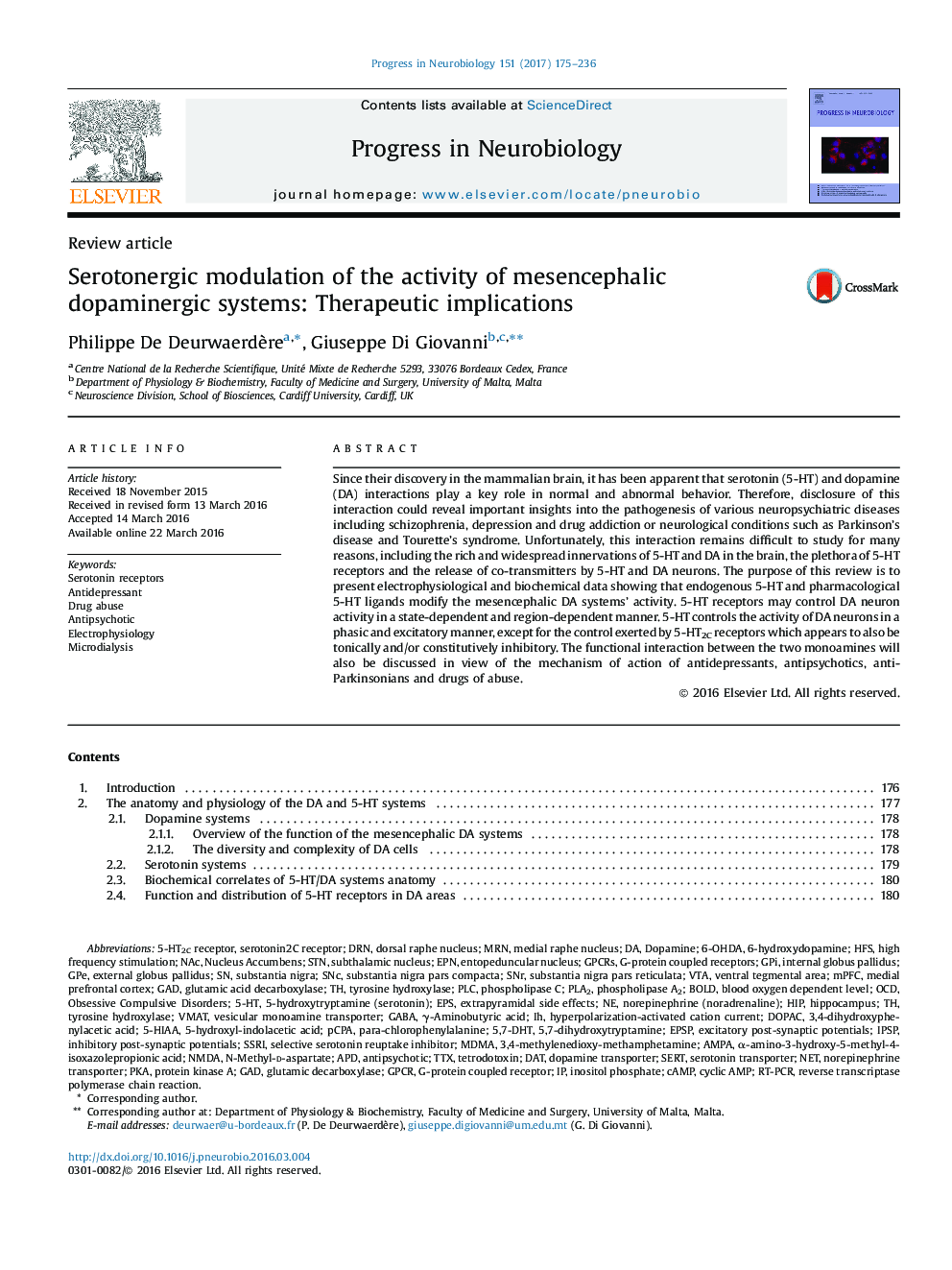| Article ID | Journal | Published Year | Pages | File Type |
|---|---|---|---|---|
| 5739093 | Progress in Neurobiology | 2017 | 62 Pages |
â¢Serotonin exerts different controls towards ascending dopamine pathways.â¢Most serotonin receptors can participate in the control of each dopamine pathway.â¢The influence of serotonin receptors on dopamine neurons is conditional in subcortical regions.â¢The 5-HT2C receptor is solely involved in inhibitory controls of basal dopamine activity.â¢Serotonin controls participate differentially in the mechanisms of psychoactive drugs.
Since their discovery in the mammalian brain, it has been apparent that serotonin (5-HT) and dopamine (DA) interactions play a key role in normal and abnormal behavior. Therefore, disclosure of this interaction could reveal important insights into the pathogenesis of various neuropsychiatric diseases including schizophrenia, depression and drug addiction or neurological conditions such as Parkinson's disease and Tourette's syndrome. Unfortunately, this interaction remains difficult to study for many reasons, including the rich and widespread innervations of 5-HT and DA in the brain, the plethora of 5-HT receptors and the release of co-transmitters by 5-HT and DA neurons. The purpose of this review is to present electrophysiological and biochemical data showing that endogenous 5-HT and pharmacological 5-HT ligands modify the mesencephalic DA systems' activity. 5-HT receptors may control DA neuron activity in a state-dependent and region-dependent manner. 5-HT controls the activity of DA neurons in a phasic and excitatory manner, except for the control exerted by 5-HT2C receptors which appears to also be tonically and/or constitutively inhibitory. The functional interaction between the two monoamines will also be discussed in view of the mechanism of action of antidepressants, antipsychotics, anti-Parkinsonians and drugs of abuse.
